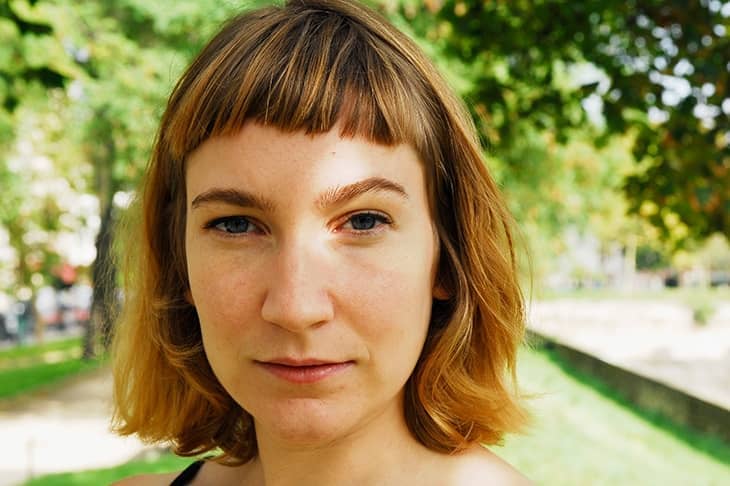Readers familiar with Sheila Heti’s work, most notably How Should a Person Be? and Motherhood, in which she examines both the possibility and implications of choosing one’s life and dealing with the consequences, will be familiar with her apparent capriciousness. Her prose — freewheeling, elliptical, a tangle of jokiness and jeopardy — seems to capture the puzzle of proportionality: how seriously should we take this one life we have, and how can we hope to balance our opposing urges towards levity and gravity?
In Pure Colour, we appear to be in similar territory, immediately introduced to a playful version of the universe in which humans are the critics of God’s artistic creation and divided into three categories: birds (concerned with abstract ideals such as beauty and harmony); fish (focused on the greatest happiness of the greatest number) and bears (who devote their emotional intensity to those they love the most).
In this playful version of the universe, humans are divided into three categories: birds, fish and bears
What we perhaps haven’t cottoned on to, the novel’s third-person narrator suggests, is the idea that we are merely God’s initial go at this — ‘expendable soldiers in the first draft of the world’ — and that future beings might be freed from an awful lot of the troublesome mental and psychological baggage that makes our lives so difficult. The question of what purpose art would serve in this imaginary theological scenario pushes itself forward. What if art is necessary only for our particular situation, and intractably connected to our most destructive impulses, our addiction to ‘killing and winning’? Would it be so bad if all that were gone, even if it meant that art were lost too?
It’s hard to describe Heti’s ruminations without making Pure Colour sound like a dreaded thought experiment.








Comments
Join the debate for just £1 a month
Be part of the conversation with other Spectator readers by getting your first three months for £3.
UNLOCK ACCESS Just £1 a monthAlready a subscriber? Log in